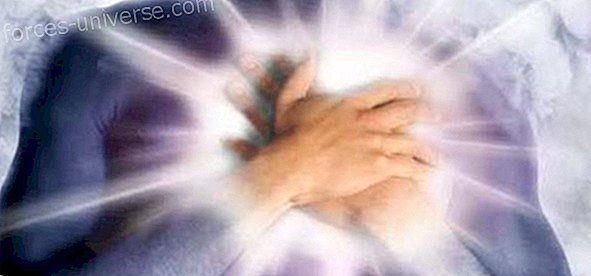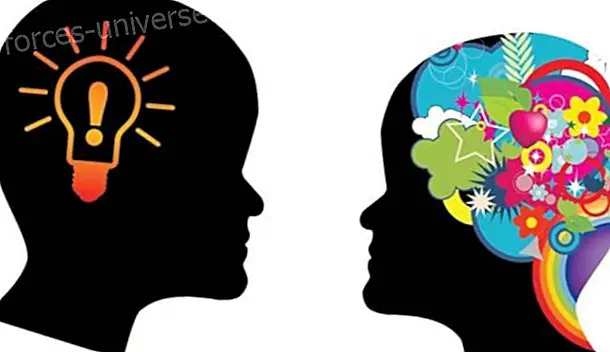
Since ancient times, human beings have been amazed by nature and its mysteries. Not infrequently he has tried to dominate it in order to discover its secrets and answer big questions, especially why does evil exist? To do this, he has sought the ultimate reality ad intra and ad extra, using ancient techniques such as magic, alchemy and ultimately theurgy (practice of invocation of gods and demons).
All ancient cultures have come up with a common consensual event, which harms (either directly or indirectly) the existence of the human being, namely: the existence of harmful spirits or demons . This symbolic-cultural consensus, which is established as an archetype for the collective psyche; he immerses himself in the understanding of good and evil, that is, in duality . The dual is as extensive as nature itself, and in parallel as the understanding of the man who thinks binaryly (ugly-beautiful, day-night, man-woman, matter-spirit, high-low, good-bad, etc.)
What is a demon?

It comes from the Greek "δαίμων" (daimon) that translates by genius, will, destiny . For Greek and Roman mythology, it was not necessarily an evil entity, but a messenger and intermediate being between the gods and the human being. But Judeo-Christian mythology has given the term an evil character, understanding it as a "fallen angel", each having hierarchy and classifications that represent the vices .
In this way, a demon can be defined as an immaterial being of angelic nature that has moved away from divine virtue (or pure love) by hating its creator. It is a being of dense or low frequencies, which inclines the human being through temptation: to sin and error, causing a psychospiritual imbalance. Sin would then be the distancing of the apprehension of the creator. Therefore, it is understood that demons are beings that possess intelligence and love God frustratedly.
What is your intelligence?
In Thomistic metaphysics, these beings differ from man not only by the fact of being incorporeal, but by possessing a different kind of understanding from the human . Every starting point of metaphysics for man is the ontological entity, that is, the entity common to all material reality. So you begin to know through the senses, and then develop processes of abstraction and construction of knowledge.
However, the angel possesses what is called angelic understanding, which is the object of a non-sensitive intuition, so that his first object of knowledge is not the ontological entity (as in the human being), but its very essence. Hence, gnoseologically access to the noumenon or thing itself. His understanding does not pass through the physis (the movement), nor through the ens quatum (typical of mathematics), but is already in the third degree of abstraction without any matter.
Are demons necessarily bad?

As is known, by great philosophical positions such as the Greek, Christian and Jewish ontology, evil can be defined as the absence of good. In this sense it is a free departure from the divine essence. The bad will be understood then, as lack or mutilation of good, so that demons would be bad to be absent from the idea of Good . Such distancing would cause an imbalance at his spiritual level where pride, hatred and anguish would reign. However, for Eastern positions good and evil are opposite but complementary forces, necessary to produce the world of forms. The symbol that reflects this is yin and yang, where each force has a seed of its opposite.
How has the existence of intangible entities been determined?

This arises from a hermeneutic of the facts, where the suffering was attributed to external causes (such as natural disasters, diseases, or magical practices of invocation or covenants with an evil being that affected the way, and even in the health of man) OR also for internal causes (such as mental disturbances or the appearance of monstrous dream figures in nightmares)
Thus, for example, some primitive peoples assumed that the problems of the mind were due to evil spirits who took the person as guests and to let them out, the subject resorted to healers, who performed the old and absurd technique of trepanation, to make the evil spirit escape. The irony is that many people died trying.
Regarding internal causes, it must be clear that the human being has an immaterial structure, manifested by his cognitions and feelings. So the devil can be interpreted as a part of psychic fragments dissociated from consciousness, and may be referred, from an analytical psychology perspective to the archetype of the shadow, as the instinctive part repressed by consciousness.
Therefore, as neurotic thoughts and emotions intensify; the suffering and stagnation of libido is growing. which is generating non-operational behaviors and in turn; a complex on the structural core of Yo. Hence, it is interpreted that each person founds and feeds their own demons, this being an internal state of consciousness, where the individual loves himself frustratedly.
Are demons, possessions and psychiatric illnesses the same?

Although at present, with the development of medicine and the diagnostic manuals of mental illnesses (DSM), a taxonomy of psychiatric diseases has been developed, the similarity of the symptoms of demonic possession is striking, especially the criteria diagnoses shared by dissociative disorders and some psychotic features .
In this way, psychotic and dissociative disorders such as: depersonalization, identity and dissociative amnesia; They are characterized by an interruption and alteration of the higher psychological processes, expressed by the failures in normal integration of consciousness, memory, subjectivity or self-identity, emotions, perception, motor control and behavior. Things also happened in a process of possession, but what sets the tone to determine if it is a demon independent of the psyche?
In possessions, preternatural symptoms occur, that is, they transgress the natural order. Such symptoms express because: the person can have a fluent understanding, understanding and knowledge of dead tongues, which are actually unknown by the subject who speaks with double and grotesque voices. Also knowledge of hidden things about people outside him, for example, he can mention in detail the "sins" to those who perform the exorcism (this is explained by the degree of abstraction of his superior understanding). And finally, the person can levitate, thereby breaking the natural law of gravity or poltergeist phenomena can happen .
On the other hand, mental conditions occur because of biological-hereditary reasons, and are treated with medications. While possessions, they can be the result of deviant esoteric practices, such as hexes and sorcery or direct invocation of some harmful spirit.
In this sense, a person who presents psychotic or dissociative traits, but in reality, is under the influence of a spiritual entity; It will only be cured through the practice of exorcism and constant prayer. So exorcism and prayer are the guidelines to treat it, since if it were a purely psychiatric problem, the ritual of exorcism would do nothing to the person with the disorder, and this would continue with his illness. On the other hand, if it is an affirmative case of possession, the person will return to normal and will not present clinically significant discomforts in his social, work or personal life.
Finally, it is currently unknown for psychiatry, if a psychological and archetypal complex could cause everything described and specifically the transgression of natural laws. However, the phenomenon of possession must be understood as a more philosophical situation than a "supernatural" order provided that it is given the philosophical and non-religious perspective, in order to give it a more adequate approach. Already from the Sumerian and Greek culture, this topic has been discussed. As in the case of Plato, who commented on four types of possession, at the mercy of the "divine madness, " - which is nothing other than the irrational of the collective unconscious and its archetypes - framed by: The possession of the muses (or poetic ), that of Apollo (own of the prophets), that of Dionysus and that of Eros (or of love). However, there is always doubt: are the external or internal hardened demons of the human psyche?
Author: Kevin Samir Parra Rueda, editor in the great family of hermandablanca.org
More information in:
American Psychiatric Association (2014). Diagnostic and statistical manual of mental disorders, DSM-5 . (5th ed.). Madrid, Spain: Editorial Panamericana
Fortea, J. (2012). Summa Daemoniaca Treaty of demonology and exorcists manual . Zaragoza, Spain: Editorial Dos Latidos.
González, A. (1967). Metaphysics Treaty: Ontology . (2nd ed.). Madrid, Spain: Gredos, SA
Thomas Aquinas. (2001). Summa of Theology . (4th ed.). Madrid, Spain: Library of Christian authors






